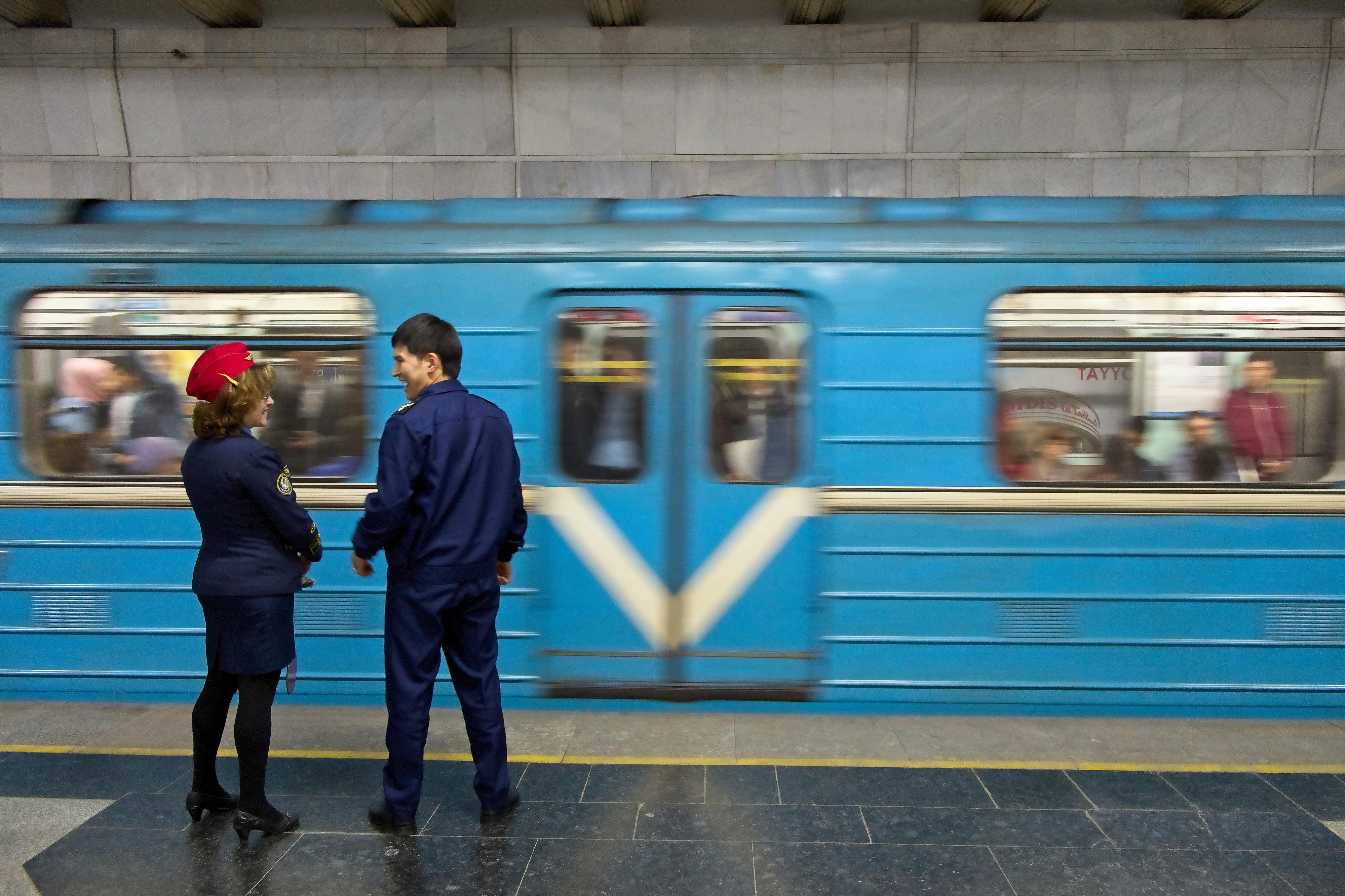Metro station in Tashkent, Uzbekistan
Copyright© il telgrafo, via flickr, CC BY-NC 2.0
Political situation Ambitious reforms after a long period of standstill
President Mirziyoyev has presented an ambitious political and economic reform programme. The aims of his “Development strategy for a new Uzbekistan 2022-2026” include increasing the effectiveness of the administration, strengthening the rule of law, developing a free civil society, promoting the private sector, and improving the health and social protection systems.
The reform policies are already showing signs of success. Among other things, a ban on using children and forced labourers to harvest cotton has been put in place. Measures like these have paved the way for Uzbekistan to be included in the European Union’s GSP+ system of trade preferences. It grants developing countries reduced tariffs if they adhere to international agreements to protect the environment and respect human rights.
Other notable progress includes, for example, a fivefold increase in spending on drinking water supply – roughly 80 per cent of the population now has access to clean drinking water. The number of kindergartens has been tripled – 60 per cent of all children now have access to pre-school education. And, thanks to scholarships, the share of young people who have completed higher education has risen from 9 to 25 per cent.
Foreign policy
In its foreign policy, Uzbekistan is committed to neutrality and non-alliance. Its heavy economic dependence on Russia makes it difficult for Uzbekistan to take a clear stance on Russia’s war of aggression against Ukraine. The country is working to expand Central-Asian cooperation and is scaling up its involvement in regional and international organisations.
In July 2022, the European Union and Uzbekistan concluded negotiations on an Enhanced Partnership and Cooperation Agreement which includes new areas of cooperation and significantly improves the regulatory framework for trade and economic relations.
Deficits in regard to the rule of law and human rights
According to its constitution, Uzbekistan is a presidential democracy with a bicameral parliament. In fact, however, the country’s political course is determined by the State President. In 2019, the electoral laws were improved in the run-up to the parliamentary elections, and the parliament has taken on a more active role recently. But there is still no parliamentary opposition – all political parties represented in parliament are regarded as being close to the government. Election monitors from the Organization for Security and Co-operation in Europe (OSCE) noted deficits in regard to basic rights and irregularities in the voting process during both the presidential and the parliamentary elections.
Thanks to the wide-ranging package of reforms introduced by President Mirziyoyev, Uzbekistan’s human rights situation is gradually improving. Since 2016, large numbers of political prisoners have been released and contacts with international human rights organisations intensified. However, freedom of expression, freedom of the press and freedom of assembly all continue to be severely restricted. Critical reporting is mainly found on social media. Journalists and bloggers repeatedly experience intimidation and state repression.
Another area in which the rule of law falls short is the country’s judiciary, which does not operate independently. Court rulings are frequently politically motivated and existing legal provisions are often not enforced.
Historical background
Before the sea route to India and China was discovered, Uzbek cities such as Samarkand, Bukhara and Tashkent were major trading centres along the famous Silk Road. From 1860 onwards, the entire region gradually came under Russian rule; in 1924, the Uzbek Socialist Soviet Republic was founded. Since 1991, Uzbekistan has been an independent republic, belonging to the Commonwealth of Independent States (CIS) along with other successor states to the Soviet Union.
As at: 16/06/2025
